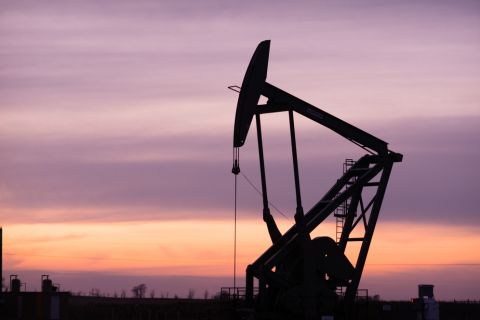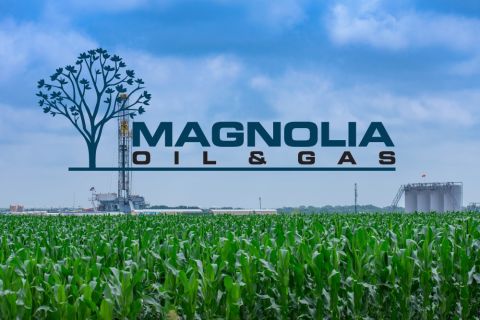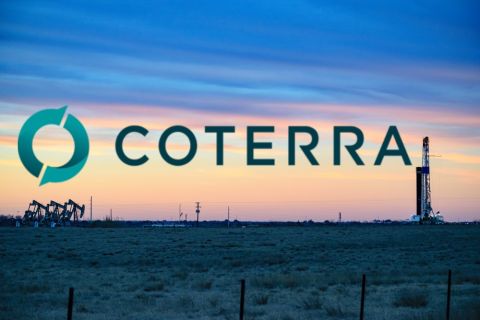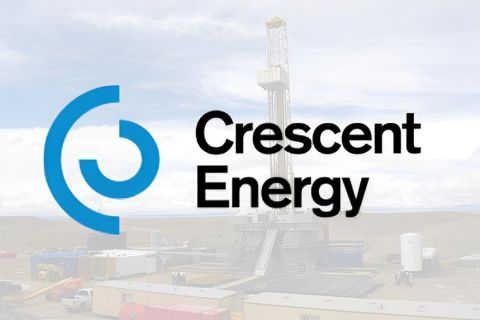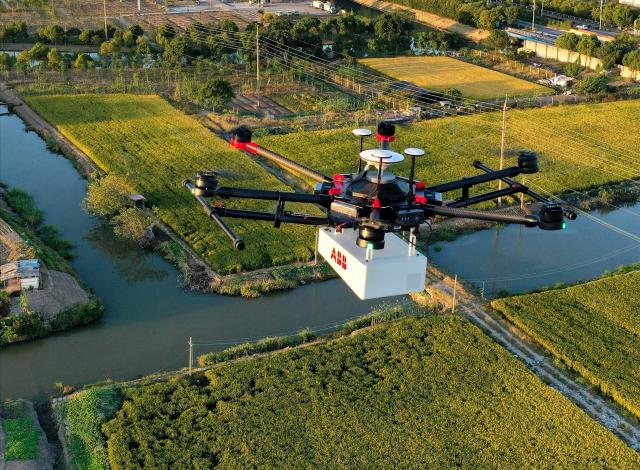
ABB HoverGuard in action. (Source: ABB)
ABB has launched the world’s fastest, most sensitive drone-based leak detection and greenhouse gas measuring system, the company said on April 1.
Pipelines often cross inaccessible terrain to supply industrial and domestic gas. Operators of these networks must ensure the safety, integrity and reliability of their pipelines but accurate detection of odorless and invisible gas leaks can be challenging and expensive. ABB’s latest addition to its ABB Ability Mobile Gas Leak Detection System, HoverGuard, provides the solution by finding leaks faster and more reliably than ever before.
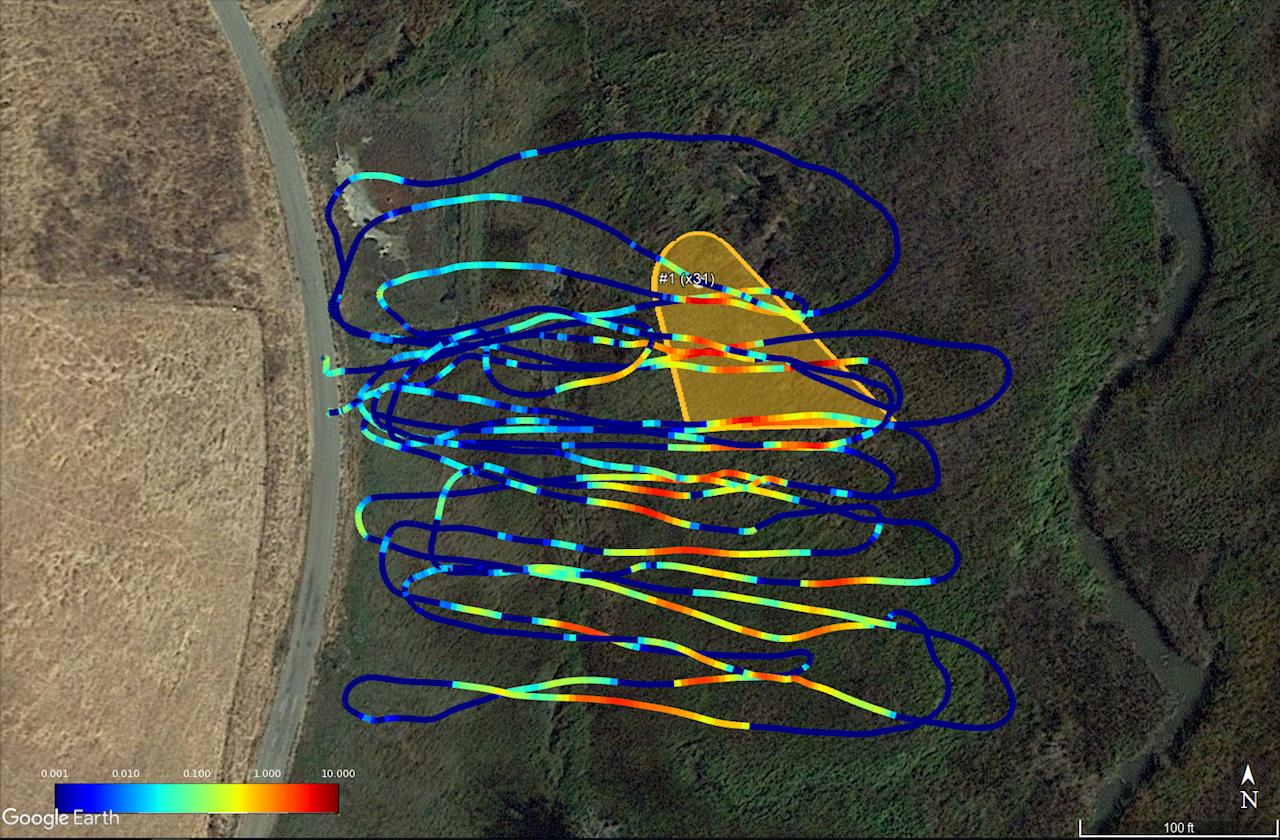
HoverGuard detects, quantifies and maps leaks up to 100 m from natural gas distribution and transmission pipelines, gathering lines, storage facilities, and other potential sources quickly, safely and reliably. It automatically generates comprehensive digital reports that summarize results and can be shared in minutes after a survey.
The cloud-connected, multi-gas solution is also the first Unmanned Aerial Vehicle (UAV)-based system to quantify the three most important greenhouse gases methane, carbon dioxide and water vapor continuously while flying. Each greenhouse gas affects the environment differently and is present in the air in different amounts. The extremely fast response and high precision of the analyzer allow scientists and researchers to reliably quantify greenhouse gas fluxes which provides important information when studying the complex environmental processes affecting climate and pollution.
Patented cavity enhanced laser absorption spectroscopy detects methane with a sensitivity more than 1,000 times higher and over 10 times faster than conventional leak detection tools. This sensitivity and speed allows HoverGuard to detect leaks while flying at altitudes of 40 m, or higher, and at speeds greater than 88 km/h. It can cover 10 to 15 times more land area per minute by operating on low-cost commercial UAV capable of carrying a payload of 3 kg.

“HoverGuard represents an important step-change in gas leak detection and for the environment,” Dr. Doug Baer, ABB global product line manager of laser analyzers, said. “Previously inspectors had to rely on slow, qualitative, analog sensors or expensive delicate cameras to find leaks. Our groundbreaking solution effectively probes locations otherwise inaccessible by either walking or driving. It will increase safety across the pipeline network whether in remote or urban environments, by detecting and mapping natural gas leaks around hard-to-reach sites such as bridges, areas with right-of-way restrictions or vegetation coverage, gas storage assets and pipelines.”
HoverGuard complements ABB’s existing gas leak detection offering with the vehicle-based MobileGuard, hand-held MicroGuard and stationary EverGuard (to be launched later in 2021). They are all designed to operate independently. Combining them provides the most comprehensive platform to detect, map and quantify leaks with unprecedented speed, reliability and accuracy throughout the entire natural gas infrastructure, including upstream, midstream, downstream, and gas utilities.
Recommended Reading
Hess Corp. Boosts Bakken Output, Drilling Ahead of Chevron Merger
2024-01-31 - Hess Corp. increased its drilling activity and output from the Bakken play of North Dakota during the fourth quarter, the E&P reported in its latest earnings.
CEO: Magnolia Hunting Giddings Bolt-ons that ‘Pack a Punch’ in ‘24
2024-02-16 - Magnolia Oil & Gas plans to boost production volumes in the single digits this year, with the majority of the growth coming from the Giddings Field.
The One Where EOG’s Stock Tanked
2024-02-23 - A rare earnings miss pushed the wildcatter’s stock down as much as 6%, while larger and smaller peers’ share prices were mostly unchanged. One analyst asked if EOG is like Narcissus.
CEO: Coterra ‘Deeply Curious’ on M&A Amid E&P Consolidation Wave
2024-02-26 - Coterra Energy has yet to get in on the large-scale M&A wave sweeping across the Lower 48—but CEO Tom Jorden said Coterra is keeping an eye on acquisition opportunities.
Uinta Basin: 50% More Oil for Twice the Proppant
2024-03-06 - The higher-intensity completions are costing an average of 35% fewer dollars spent per barrel of oil equivalent of output, Crescent Energy told investors and analysts on March 5.

